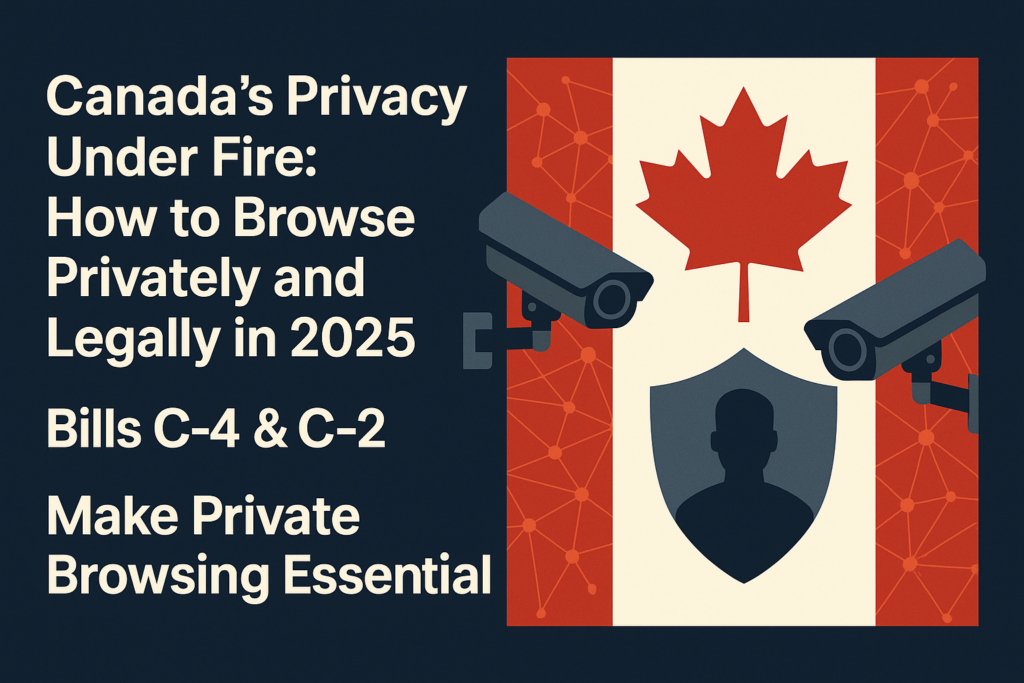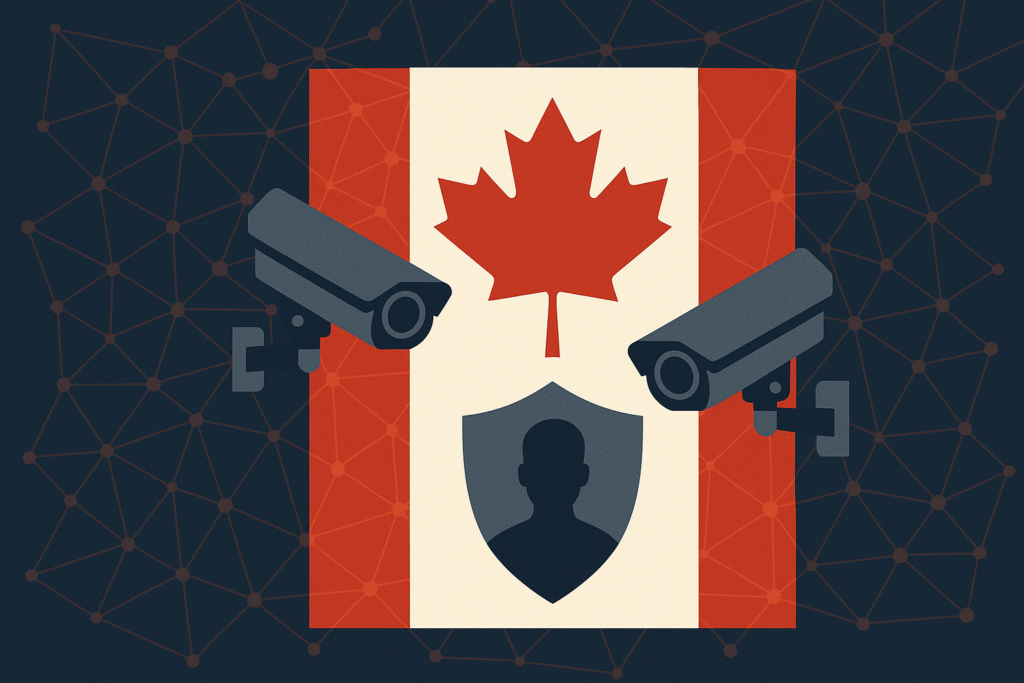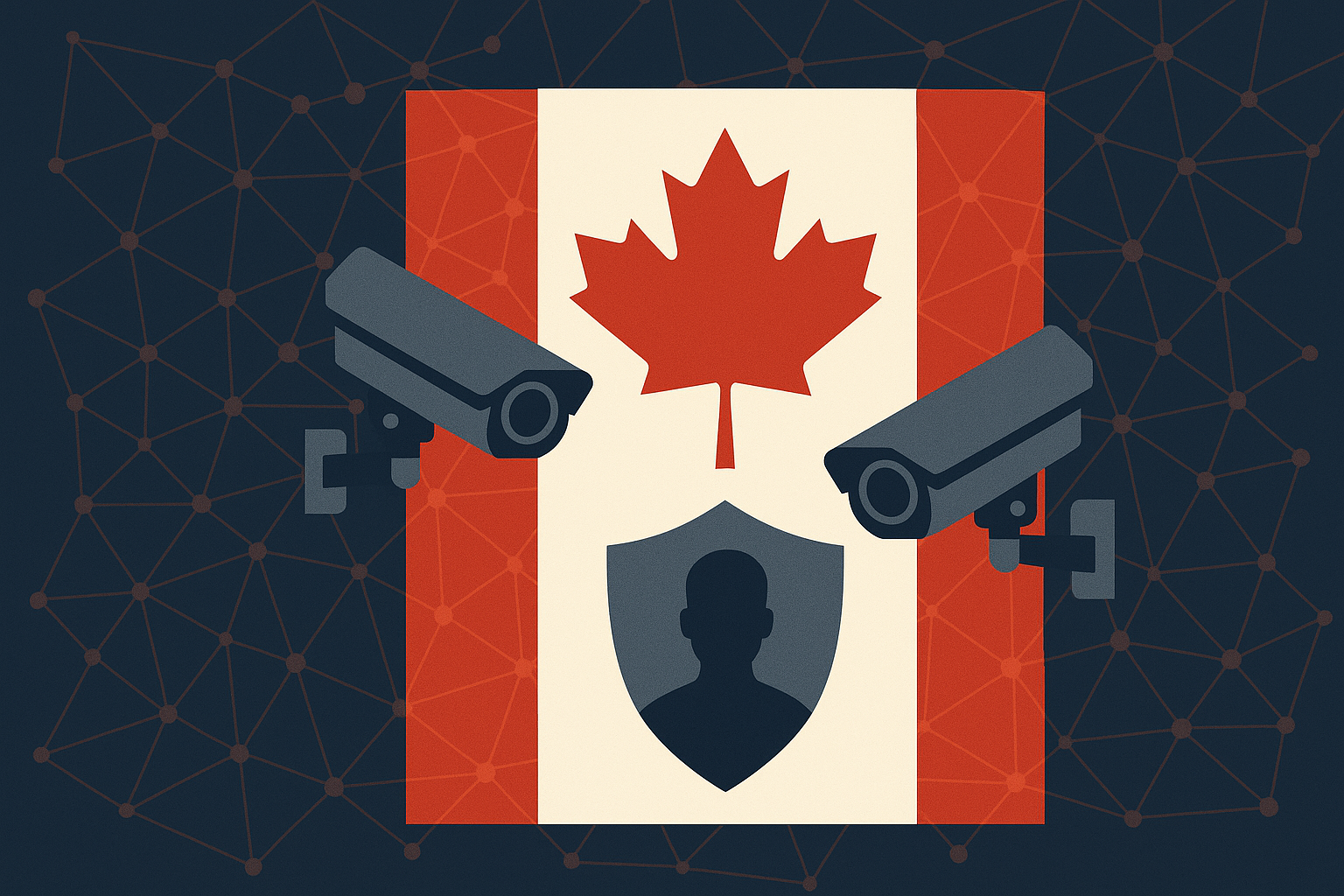
Why Bill C‑4 & C‑2 Make Private Browsing Essential
In 2025, Canadians’ digital rights are facing a quiet but serious threat. While mainstream headlines focus on elections, inflation, and AI, two new federal bills—Bill C‑4 and Bill C‑2—are making dangerous changes to your online privacy.
If you’re concerned about government surveillance, third-party tracking, or identity exposure, it’s time to take action. One of the most effective ways to protect yourself right now? Start using a privacy browser—and understand what’s at stake.
What Are Bills C‑4 and C‑2?
Buried deep inside unrelated legislation, these bills introduce provisions that could fundamentally change how your digital identity is protected:
- Bill C‑4 retroactively legalizes past privacy violations during government handling of union-related protests—setting a precedent for future immunity.
- Bill C‑2 allows law enforcement to access your IP address and subscriber data without a warrant, reversing a 2014 Supreme Court ruling that protected digital identity under the Charter of Rights and Freedoms.
Both measures were passed with little debate, little transparency, and little public awareness.
Why This Matters for Private Browsing
Your IP address is the key to your digital fingerprint. It links your device to your location, browsing history, and identity. Under normal legal standards, that information requires a warrant. But if Bill C‑2 stands, Canadian police could gain access without your knowledge—or legal recourse.
Meanwhile, retroactive immunity under Bill C‑4 sends a chilling message: even if privacy laws are broken, the government can rewrite the rules later.
How a Privacy Browser Can Protect You
The best privacy browsers go far beyond “incognito mode.” Tools like Incognito Browser are designed to defend against the very types of digital surveillance now creeping into Canadian law.
Core privacy browser features to look for:
- IP cloaking: Hides your real IP address by default.
- No data collection: Your browsing activity isn’t tracked, saved, or sold.
- Automatic data erasure: Tabs and sessions close with zero trace.
- Ad & tracker blocking: Prevents third-party cookies and fingerprinting.
- .crypto and .eth support: Browse the decentralized web securely.
Choosing the right private browser is now a critical line of defense for Canadian users.
Why Canadians Are Choosing Incognito Browser
As bills like C‑4 and C‑2 erode the presumption of privacy, more Canadians are switching to Incognito Browser. Here’s why it’s quickly becoming the best privacy browser in Canada:
- It collects zero data—not even anonymized logs.
- No ads, no trackers, no third-party scripts.
- Biometric lock support keeps your browser private even on a shared device.
- Compatible with VPNs and Tor routing for advanced privacy layering.

Most browsers claim privacy. Incognito Browser is built around it.
👉 Get Incognito Browser for Android
More Ways to Protect Your Privacy in 2025
Pairing a privacy-focused browser with other digital tools is the smartest strategy right now:
| Tool | Benefit |
|---|---|
| 🔐 VPN | Hide your IP from ISPs and government surveillance |
| 🕵️ Private Search Engine | Avoid data harvesting from major search providers |
| ✉️ Encrypted Email | Prevent metadata and content tracking |
| 👁️ Tracker Blocker Extensions | Reinforce browser-based protections |
| 🗳️ Civic Engagement | Contact your MP and demand better privacy laws |
The Bigger Picture: Privacy Laws in Canada Are at a Crossroads
This isn’t the first time Canadian leaders have tried to normalize surveillance:
- In 2012, Bill C‑30 (the “lawful access” bill) was withdrawn after public outcry.
- In 2024, the Supreme Court ruled IP addresses deserve full legal protection.
- Yet in 2025, Bill C‑2 reverses that progress, bringing us back to warrantless overreach.
As laws grow more invasive, it becomes critical to own your privacy stack—and that starts with your browser.
Final Thoughts: Your Digital Life Deserves Better
Privacy isn’t a luxury. It’s a right—and one you must now actively defend.
Start by choosing a private browser that works for you. Combine it with smart tools, legal awareness, and a loud voice in the political process.
Don’t wait for laws to protect you. Protect yourself today.



